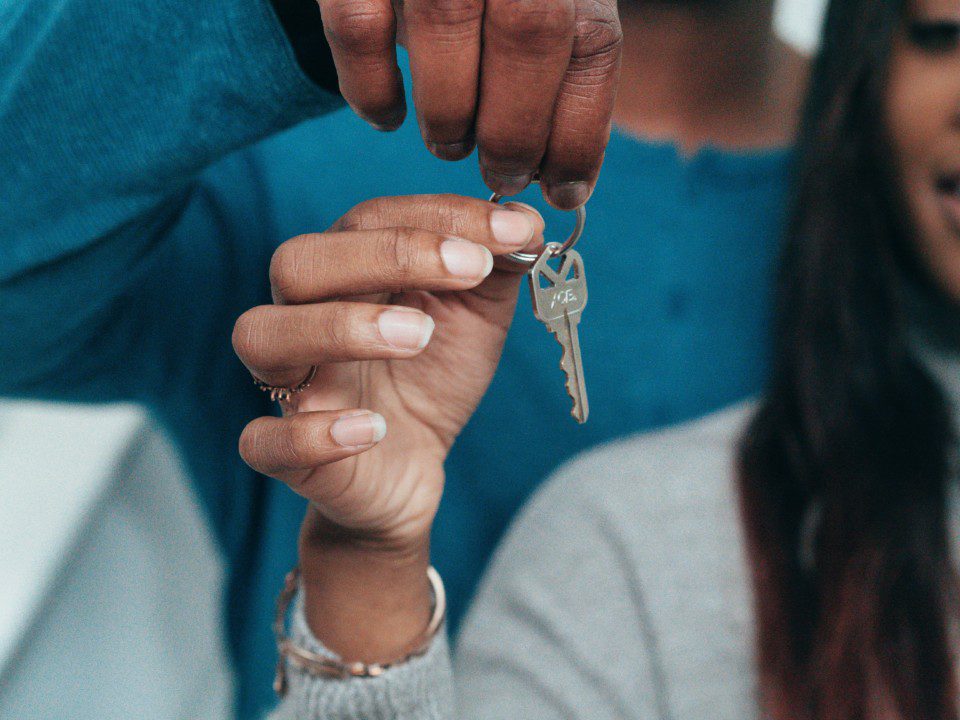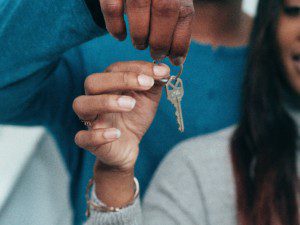January 20, 2022

Rocket Mortgage and RocketHomes
Laura Gariepy
Jan. 14, 2022
 For many young professionals, the new year signals a reset. It’s like a clean slate that offers the opportunity to reevaluate old goals and set new ones. Often, this includes re-assessing finances, adjusting budgets, and setting new financial goals, maybe with a larger purchase in mind, such as buying a new car or home. However, there are many considerations to make when making large investments like that, and not everyone knows where to start.
For many young professionals, the new year signals a reset. It’s like a clean slate that offers the opportunity to reevaluate old goals and set new ones. Often, this includes re-assessing finances, adjusting budgets, and setting new financial goals, maybe with a larger purchase in mind, such as buying a new car or home. However, there are many considerations to make when making large investments like that, and not everyone knows where to start.
Rocket Mortgage and RocketHomes are working to change that and make getting started with buying your first home as easy as possible. So, if you’re a young professional who is overwhelmed by the vague tidbits shared about buying a home like “have enough for 20% down and closing costs,” and “make sure you buy a home within your price range,” this article is for you. Keep reading to learn how much money you actually need to buy your first home.
![]()
You’re so ready to be done with renting. You’re just not sure if you’re financially ready to buy a home. You know there’s more to being a homeowner than just paying your mortgage each month. But, you wonder, how much money do you need to buy a house?
To help you prepare, we’ve laid out everything you need to know about the upfront and recurring costs of buying a home.
Buying a house can cost you some serious money upfront. These expenses involve significantly more than just your down payment, too. Let’s take a look at an example.
Let’s say you buy a $300,000 home with a 30-year fixed mortgage at 3% interest. You put 20% down. This is roughly what it would cost you to move into your new home:
| Expense | Description | Amount |
| Down payment | 20% of $300,000 | $60,000 |
| Closing costs | 3 – 6% of $240,000 | $7,200 – $14,400 |
| Cash reserves | 2 months mortgage of $1,012 | $2,024 (reflects principal and interest only) |
| Moving costs | Long-distance move | $2,000 – $5,000 |
| Total upfront costs | $71,224 – $81,424 |
Of course, there are lots of variables at play here. Your situation may look completely different depending on the cost of your home and what type of mortgage you take out. It’s just important for you to understand all of the potential costs involved in a real estate transaction. We’ll look at them in more detail below.
Let’s take a closer look at how much money you’ll need to save up for the different upfront costs associated with buying a home.
Conventional wisdom says your down payment should be at least 20%. While putting that much down can result in a better interest rate, help you avoid paying private mortgage insurance and get you a lower monthly mortgage payment, the truth is, you don’t need to come up with that much money. In fact, it’s possible to buy a home with 0% down.
Here are the minimum down payment requirements by mortgage type:
Of course, each type of loan has specific eligibility criteria you’d have to meet to qualify. For instance, VA mortgages are only available to active military members, veterans and, in some cases, their spouses. You’ll have to learn about each type of mortgage to see which best fits your situation.
After your down payment, your closing costs will be the next biggest hit to your wallet. These costs vary by state, lender and loan, and cover expenses associated with finalizing your real estate transaction. In general, you can expect to pay 3 – 6% of your home’s purchase price.
The most expensive closing cost is likely funding your escrow account, which could be up to 2% of what you pay for your house. This account is opened by your lender and will be used to pay your homeowner’s insurance, property taxes and mortgage insurance (if applicable) on your behalf. While your monthly mortgage payment will include these costs on an ongoing basis, your state may require you to prepay a certain number of months in advance.
Though many closing costs are applicable regardless of mortgage type, FHA, VA and USDA loans have specific fees. FHA borrowers will need to pay 1.75% of their loan amount in mortgage insurance upfront. VA loan holders will likely pay a funding fee based on how much money they put down. And USDA mortgagors will pay 1% of their borrowed amount as a guarantee fee.
You may be able to convince the seller to cover some of your closing costs (the maximum amount allowed is based on mortgage type). There are also programs designed to help first time home buyers cover this expense. If neither applies to your situation, some lenders might allow you to roll your closing costs into your loan. While this frees up cash flow now, your monthly payment will be higher, and you’ll pay interest on the additional amount, increasing your overall cost to borrow.
Your lender wants to be sure that you’re not going to be in the poorhouse after you buy your home. So, in order to protect their investment, they may require you to have cash reserves in the bank after closing – expressed as a certain number of extra monthly mortgage payments.
The requirement could be as few as 2 months to as many as 12, if you’re self-employed. If you’re taking out a jumbo loan, you will need to have 12 months’ worth of extra mortgage payments in the bank. Having sufficient cash reserves from the start decreases your likelihood of defaulting on your mortgage. Plus, won’t it feel nice to have some breathing room?
Although the big expenses have already been covered, you’ll still need to pay several other one-time fees when buying a house. Some of these fees include:
You’ll drop more money than you ever have before at the closing table. But, the costs of homeownership are only just beginning. In order to properly enjoy your home and keep your finances in good shape, you’ll need to budget for several recurring expenses associated with buying a house.
Of course, there’s your actual mortgage payment, which includes principal and interest based on the amount you borrowed, your loan term, and your interest rate. Chances are, your monthly payment to your lender will also cover your:
If you have a conventional mortgage, and you don’t put 20% down, you’ll pay 0.5 – 1% of your loan amount each year in private mortgage insurance (PMI). The good news is that once you’ve built up 20% equity in your home, the expense will end. Assuming you borrowed $240,000, you’ll pay $1,200 – $2,400 annually.
However, if you have an FHA mortgage, you’ll likely have to pay mortgage insurance for the life of the loan to the tune of 0.45 – 1.05% of your borrowed amount every year. Assuming a $240,000 initial loan, you’ll pay $1,080 – $2,520 annually.
Based on policy terms, your homeowners insurance will repair or replace your home and its contents if you experience qualifying damage or theft. The average homeowners insurance premium is $1,200 per year. But, your rate could vary depending on the location of your home, its condition, your credit score, your deductible and other factors.
Property taxes are collected to pay for essential services in your community (think first responders, road repair, public schools, etc.). It’s a wild card expense that can vary dramatically based on where your property is located and the assessed value of your home. Your local government is responsible for setting the tax rate and can increase it at any time. To give you a ballpark idea, expect to pay about $1 per $1,000 of your home’s value each month. That means a $300,000 home would run you $300 per month, or $3,600 annually.
As if all of the above wasn’t pricey enough, you’re responsible for keeping your home in good condition. That means you’ll need to pay for routine maintenance and required repairs. A good rule of thumb is to set aside 1 – 3% of your home’s value each year to cover any work that your house needs. So, for a home worth $300,000, be sure to have $1,000 – $3,000 on hand.
Don’t forget, now that you’re not renting anymore, all of the utilities are on you. That means you’ll have to cover the electricity, heating and water bills each month. While utility rates vary based on utility type and service provider, the average homeowner in America spends roughly $270 per month to cover these expenses.
Is your property under a homeowners association (HOA)? If so, you’ll need to pay fees as a member. These fees cover community amenities and common area maintenance. The average homeowner of a single-family residence within an HOA ends up paying $200 – $300 per month.
The answer to how much money you need to buy a house: It depends. Based on the route you take, you may need a lot of funds to close the deal. So, as you plan for your home purchase, be sure to account for both upfront and recurring costs. And do your homework to determine which type of mortgage works best for your situation. The type of loan you take out can play a huge factor in how much cash you need at closing and each month thereafter.
If you need more information, contact a real estate expert. They can provide guidance tailored to your unique circumstances.